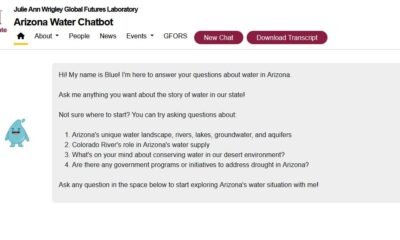abortion
Abortion Translation Dilemma: Interpreters Face Ballot Measure Challenges

Reproductive rights measures are set to appear on ballots in ten states, following intense discussions about the best ways to communicate their implications on abortion. This linguistic challenge extends beyond English, as the Voting Rights Act mandates that election information must be accessible in the native tongues of communities with significant non-English speaking populations. In Arizona, the Navajo community receives extensive written translations, a stark contrast to many tribes that rely solely on interpreters during voting, prompting concerns regarding the integrity of ballot secrecy and potential biases.
For instance, New York’s upcoming referendum notably omits the term “abortion” from its English text, resulting in contentious interpretations. While the official Korean translation uses the term, advocates argue it conveys a misleading meaning, equating to “drop the fetus.” Similarly, articulating scientific concepts like “viability” poses further challenges for Indigenous populations, such as the Seminole and Shoshone tribes, where such terminology may have no direct translation.
In Arizona, the Navajo and Hopi tribes benefit from comprehensive translation efforts, an approach supported by federal court agreements. These agreements ensure local election officials consult community members to achieve clarity in written translations. Furthermore, these tribes employ interpreters to engage voters through spoken translations, accommodating the needs of blind voters through audio recordings.
However, for many other tribes, comprehensive translation of ballot language does not occur, with some opting for live interpreters at polling places instead. This decision raises issues about potential biases and the safeguarding of voter anonymity. In Colorado, for example, voters will encounter the simple choice of whether to support an amendment enshrining the right to abortion. Yet, the Ute Mountain Ute tribe faces a significant barrier—the absence of a term for abortion in their native language. Ute language teacher Helen Munoz emphasizes the necessity of personal explanations on Election Day to bridge this gap.
The Voting Rights Act’s Section 203 obligates effective language support in areas where census data indicates a significant population of limited English proficient individuals. While many regions primarily translate into Spanish, in Arizona, translations must also cater to the languages of various tribes, including Navajo and Hopi. Nevada requires translations into Shoshone and Filipino, as Florida does for Seminole, and Colorado necessitates Ute language support.
Despite the relative ease of translating Spanish, complications can arise. LatinoJustice PRLDEF’s attorney, Cesar Ruiz, urges the use of human translators rather than relying on potentially flawed computer-generated translations, asserting it’s a continual process of improvement.
In Florida’s Glades County, local Seminole leaders opted against written translations, stating their language lacks sufficient vocabulary for these complex terms. Elections Supervisor Aletris Farnam made arrangements for a Creek translator to assist voters in person, addressing the issue of accessibility without compromising voter anonymity.
Munoz, a seasoned elder, understands the weight of her role during voting. Despite her personal stance against abortion, she is committed to providing unbiased information. “It’s important to let voters make their own choices,” she said, reflecting on the cultural views that often lean toward conservatism regarding such issues in her community.
In New York, Proposition 1 aims to safeguard against discrimination based on various factors, including reproductive healthcare. The legal battle surrounding explicit language has led to continued debates on accurate translations, with some groups creating alternative interpretations that resonate better with their communities.
As jurisdictions expedite efforts to accommodate voters’ language needs, Coconino County in Arizona exemplifies proactive engagement by hiring tribal interpreters and utilizing mobile units to assist Navajo and Hopi voters in remote locations. Such endeavors not only help educate voters but also ensure that every voice is heard and respected at the ballot box.


















